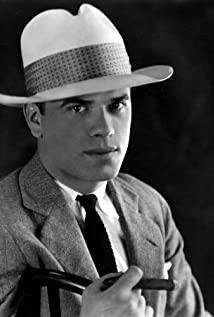Frank Capra
One of seven children, Frank Capra was born on May 18, 1897, in Bisacquino, Sicily. On May 10, 1903, his family left for America aboard the ship Germania, arriving in New York on May 23rd. "There's no ventilation, and it stinks like hell. They're all miserable. It's the most degrading place you could ever be," Capra said about his Atlantic passage. "Oh, it was awful, awful. It seems to always be storming, raining like hell and very windy, with these big long rolling Atlantic waves. Everybody was sick, vomiting. God, they were sick. And the poor kids were always crying."
The family boarded a train for the trip to California, where Frank's older brother Benjamin was living. On their journey, they subsisted on bread and bananas, as their lack of English made it impossible for them to ask for any other kind of foodstuffs. On June 3, the Capra family arrived at the Southern Pacific station in Los Angeles, at the time, a small city of approximately 102,000 people. The family stayed with Capra's older brother Benjamin, and on September 14, 1903, Frank began his schooling at the Castelar Elementary school.
In 1909, he entered Los Angeles' Manual Arts High School. Capra made money selling newspapers in downtown L.A. after school and on Saturdays, sometimes working with his brother Tony. When sales were slow, Tony punched Frank to attract attention, which would attract a crowd and make Frank's papers sell quicker. Frank later became part of a two-man music combo, playing at various places in the red light district of L.A., including brothels, getting paid a dollar per night, performing the popular songs. He also worked as a janitor at the high school in the early mornings. It was at high school that he became interested in the theater, typically doing back-stage work such as lighting.
Capra's family pressured him to drop out of school and go to work, but he refused, as he wanted to partake fully of the American Dream, and for that he needed an education. Capra later reminisced that his family "thought I was a bum. My mother would slap me around; she wanted me to quit school. My teachers would urge me to keep going....I was going to school because I had a fight on my hands that I wanted to win."
Capra graduated from high school on January 27, 1915, and in September of that year, he entered the Throop College of Technology (later the California Institute of Technology) to study chemical engineering. The school's annual tuition was $250, and Capra received occasional financial support from his family, who were resigned to the fact they had a scholar in their midst. Throop had a fine arts department, and Capra discovered poetry and the essays of Montaigne, which he fell in love with, while matriculating at the technical school. He then decided to write.
"It was a great discovery for me. I discovered language. I discovered poetry. I discovered poetry at Caltech, can you imagine that? That was a big turning point in my life. I didn't know anything could be so beautiful." Capra penned "The Butler's Failure," about an English butler provoked by poverty to murder his employer, then to suicide."
Capra was singled out for a cash award of $250 for having the highest grades in the school. Part of his prize was a six-week trip across the U.S. and Canada. When Capra's father, Turiddu, died in 1916, Capra started working at the campus laundry to make money.
After the U.S. Congress declared War on Germany on April 6, 1917, Capra enlisted in the Army, and while he was not a naturalized citizen yet, he was allowed to join the military as part of the Coastal Artillery. Capra became a supply officer for the student soldiers at Throop, who have been enrolled in a Reserve Officers Training Corps program. At his enlistment, Capra discovered he was not an American citizen; he became naturalized in 1920.
On September 15, 1918, Capra graduated from Throop with his bachelor's degree, and was inducted into the U.S. Army on October 18th and shipped out to the Presidio at San Francisco. An armistice ending the fighting of World War One would be declared in less than a month. While at the Presidio, Capra became ill with the Spanish influenza that claimed 20 million lives worldwide. He was discharged from the Army on December 13th and moved to his brother Ben's home in L.A. While recuperating, Capra answered a cattle call for extras for John Ford's film "The The Outcasts of Poker Flat (1919) (Capra, cast as a laborer in the Ford picture, introduced himself to the film's star, Harry Carey. Two decades later, Capra, designated the #1 director in Hollywood by "Time" magazine, would cast Carey and his movie actress wife Olive in Caballero sin espada (1939) for which Carey won a Best Supporting Actor Oscar nomination).

